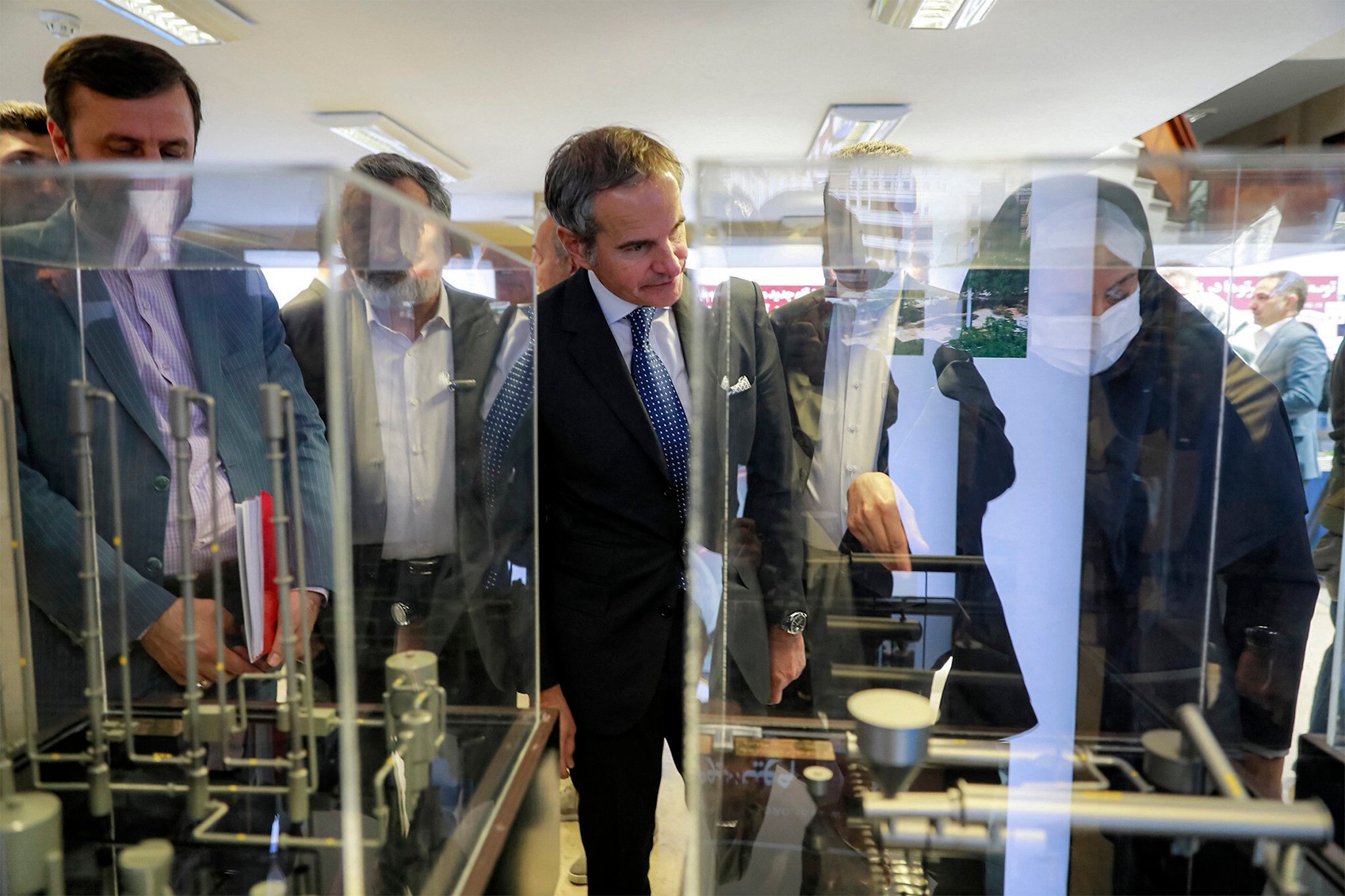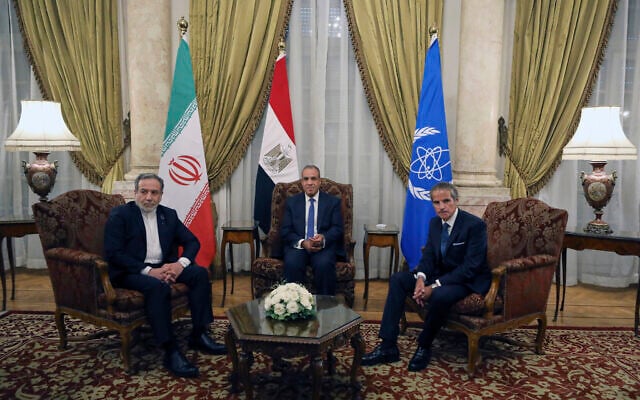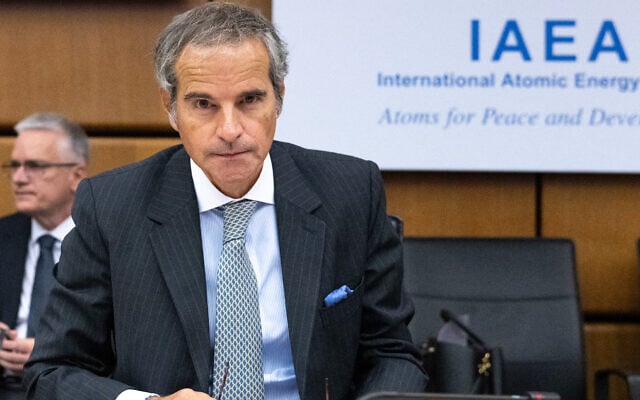


Iran on Wednesday stressed that it had not yet agreed to allow UN inspectors access to its nuclear sites, after the International Atomic Energy Agency touted a deal reached with Tehran that it said included “all facilities and installations” in the Islamic Republic.
Iran agreed to a deal with the IAEA on Tuesday for a new cooperation framework, after it suspended cooperation following its war with Israel in June. The 12-day war saw Israeli and US strikes on Iranian nuclear facilities, which the IAEA has not been able to access since.
IAEA chief Rafael Grossi said Wednesday that the document “provides for a clear understanding of the procedures for inspections.”
It “includes all facilities and installations in Iran, and it also contemplates the required reporting on all the attacked facilities, including the nuclear material present at those,” Grossi told the Vienna-based agency’s Board of Governors meeting.
But Iranian Foreign Minister Abbas Araghchi underlined that the agreement itself “does not create access” for IAEA inspectors.
Araghchi said in an interview aired Wednesday that “currently no access is given to the IAEA inspectors, apart from the Bushehr nuclear plant.” He added that “based on the reports that Iran will provide later, the type of access should be negotiated in due course.”
Araghchi said the IAEA’s board of governors meeting on Wednesday would be crucial for how cooperation with the IAEA develops.
While Iran insists its nuclear program is for peaceful purposes, Western countries accuse the government of seeking an atomic weapon — a claim Tehran has denied.
Tehran’s suspension of cooperation saw the IAEA’s inspectors leave Iran, before a team briefly returned last month to oversee the replacement of fuel at the Bushehr nuclear power plant.
Access to nuclear sites now requires the approval of Iran’s Supreme National Security Council. The most recent inspection did not include access to other key sites, including Fordo and Natanz, which were hit by Israel and the US in the June strikes.
“Iran and the agency will now resume cooperation in a respectful and comprehensive way,” Grossi told the board meeting, adding that the “practical steps… need to be implemented now.
“There may be difficulties and issues to be resolved for sure, but we now know what we have to do,” the IAEA chief added.
Araghchi said on Tuesday that Iran would end cooperation with the agency “in the event of any hostile action against Iran, including the reinstatement of lifted UN Security Council resolutions.”
In late August, Britain, France and Germany initiated steps to reimpose UN sanctions after weeks of warnings, citing Iran’s continued non-compliance with its commitments under a 2015 nuclear agreement. They gave Iran a month to make significant progress before sanctions were reimposed.
Iran has condemned the move as “illegal” and warned that it could lead to the exclusion of the European powers from any future negotiations.
A senior French diplomat told AFP on Wednesday that Iran must give access to IAEA inspectors “as soon as possible,” speaking on condition of anonymity.
“It is crucial that the IAEA be able to resume its monitoring and verification activities as soon as possible so that the international community can receive assurances about the nature of Iran’s nuclear program,” said the diplomat.
“It is actions on the ground that will be decisive,” they said, referring to a decision to reimpose sanctions on Iran. “Iran must immediately implement measures requested by the IAEA.”



